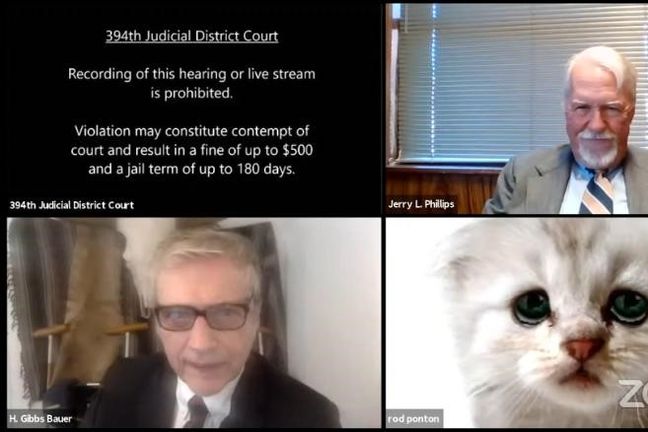In re: Kayla Fox v. William Alfini, Jr. D.C. and Brady Chiropractic Group. P.C. (December 3, 2018, 2018 WL 6441601)
Background
Kayla Fox who was in her early thirties suffered a stroke immediately after receiving chiropractic treatment and survived. Fox and her parents later contacted an attorney to discuss a possible malpractice action against the chiropractor. The attorney recorded a portion of this initial consultation.
Fox filed a lawsuit against the chiropractor for professional negligence. Discovery ensued, and, during a deposition of Fox’s mother, defendants learned that her attorney had recorded his initial consultation with Fox and her parents. The defendants jointly moved to compel the production of this recording. In their motion, the defendants argued that the presence of third parties “vitiate[d] a claim of attorney-client privilege” and that, therefore, the recording was discoverable. Fox opposed the motion. She asserted that she had diminished mental capacity as a result of her stroke. She thus contended that her parents’ presence was necessary to facilitate her communications with her attorney and did not destroy the attorney-client privilege. The district court ultimately concluded that Fox’s capacity diminished such that the presence of her parents was necessary to assist in the representation. The court ruled that the attorney-client privilege did not protect the recording and granted defendants’ request to compel the production of that recording.
Holding/Reasoning
The court noted the attorney-client privilege in Colorado is codified by statute but is not without exception. Presence of a third-party generally destroys the privilege unless the presence of a third person is necessary to make the conference possible. The Colorado Supreme Court found the District Court had not abused its discretion as its findings that Fox had not shown her mental capacity was diminished such that the presence of her parents was necessary to assist in the representation was amply supported. The evidence in the record indicated Fox had made numerous assertions on social media prior to the meeting with her attorney indicating that her symptoms had disappeared and that it was as if nothing happened. The Court ultimately held the presence of a third party during an attorney-client communication will ordinarily destroy the privilege unless the third party’s presence was reasonably necessary to the consultation or another exception applies. Here, the client’s parents’ presence at initial consultation was not reasonably necessary to consultation, and thus presence of parents destroyed any attorney-client privilege that attached to recording of consultation.
Louella Maxine Patterson and Robert A. Lees v. M. Tracy James (December 13, 2018, 2018 WL 6545118)
Background
After her husband passed away, Louella Maxine Patterson filed a tort action against her late husband’s children and attorney, M. Tracy James seeking appointment as personal representative of the estate. Patterson asserted numerous allegations against James including that James failed to notify Patterson probate proceedings had been initiated and James unreasonably billed the estate of her late husband. James moved to dismiss these claims and the trial court granted her motion. James then moved for attorney fees. The trial court awarded attorney fees and costs jointly and severally against Patterson and her attorney. James also asserted that Patterson’s and her attorney’s defense of the fee request lacked substantial justification.
Patterson appealed the trial court’s order requiring her to pay James’ attorney fees and costs. Patterson’s attorney appealed the trial court’s order that he be jointly and severally liable for the fees and costs.
Holding/Reasoning
The Court of Appeal looked at and determined that there was nothing that prevented the trial court from entering a fee award against Patterson’s attorney and that he be jointly and severally liable. Although the legislature did not grant specific authority for a joint and several award, it was not required to do so. The legislature had generally authorized joint and several fee awards. The Court of Appeal also upheld the fee award against Patterson in order to effectuate the statutory goal of deterring unnecessary tort litigation. Based on the trial court’s finding, which found ample support in the record, the Court of Appeals could not conclude the trial court’s decision to impose joint and several liability was manifestly arbitrary, unreasonable, or unfair.
Kelly A. Trujillo v. Regional Transportation District (December 27, 2018, 2018 WL 6801808)
Background
Kelly Trujillo filed a complaint alleging she was injured while attempting to catch a shuttle bus at the Mall Bus Turnaround located at Civic Center Station in downtown Denver. She claimed she stepped on a tree grate that was not properly secured, thereby causing her to fall.
Regional Transportation District (“RTD”) filed a motion to dismiss based on its assertion of governmental immunity pursuant to the Colorado Governmental Immunity Act (“CGI”). Trial Court denied the request for a hearing and the motion. RTD appealed.
Holding/Reasoning
The Court of Appeals reasoned the CGIA serves as a shield against tort liability for public entities. However, there are some exceptions in which the statute waives immunity, such as for “[a] dangerous condition of a public highway, road, or street which physically interferes with the movement of traffic. . . of any public highway, road, street, or sidewalk within the corporate limits of any municipality . . .” The key question was whether the walkway was a sidewalk. The trial court concluded the area where the tree grate was located was a sidewalk and therefore RTD was subject to the waiver provision of CGIA. However, the Court of Appeals concluded the Turnaround was a public roadway as that term is used in the CGIA. However, the limit of the public roadway determines only one side of the sidewalk. The other side is determined by property lines. The Court of Appeal could not discern where the property lines were based on the record before them. The Court of Appeals remanded the case to the trial court for a hearing to determine where the property lines were, where the boundary of the sidewalk way, and whether this incident occurred within that boundary.

 Author: Rachel Donnelly
Author: Rachel Donnelly
 Cannabis Workers Allege Quota to Trim 4 Pounds a Day Violates the California Labor Code
Cannabis Workers Allege Quota to Trim 4 Pounds a Day Violates the California Labor Code
 The Ninth Circuit Reminds Us: Every Word Matters
The Ninth Circuit Reminds Us: Every Word Matters
 NO WAY, PRO SE! The Consequences of Abusing the Judicial System as a Pro Se Litigant in Colorado
NO WAY, PRO SE! The Consequences of Abusing the Judicial System as a Pro Se Litigant in Colorado
 Victim of Financial Mismanagement or Unlawful Retaliation? New Jersey City University Program Founder Claims School Retaliated After Reporting Alleged Sexual Harassment
Victim of Financial Mismanagement or Unlawful Retaliation? New Jersey City University Program Founder Claims School Retaliated After Reporting Alleged Sexual Harassment
 “Real Housewives” Gets a Reality Check
“Real Housewives” Gets a Reality Check
 Missing a Chapter: Insufficiency of Expert Deposition Testimony in Medical Malpractice Litigation
Missing a Chapter: Insufficiency of Expert Deposition Testimony in Medical Malpractice Litigation
 Crash Course: Why Summary Judgment Misses the Mark in Illinois Multi-Cause Limousine Crash Collision
Crash Course: Why Summary Judgment Misses the Mark in Illinois Multi-Cause Limousine Crash Collision
 Bitter Truths: Lead, Cadmium, and Defective Pleadings in California Chocolate Class Action
Bitter Truths: Lead, Cadmium, and Defective Pleadings in California Chocolate Class Action
 The Law of Unintended Consequences: Including Insurance Brokers in Litigation Strategy Communication May Waive the Attorney-Client Privilege
The Law of Unintended Consequences: Including Insurance Brokers in Litigation Strategy Communication May Waive the Attorney-Client Privilege
 You Poetic, Noble Land Mermaid: A Celebration of “Galentine’s Day”
You Poetic, Noble Land Mermaid: A Celebration of “Galentine’s Day”
 A Tell-All Article on Written Discovery Objections
A Tell-All Article on Written Discovery Objections
 The Wave of Recent COVID-19 Litigation and Trends to Watch For
The Wave of Recent COVID-19 Litigation and Trends to Watch For
 How to Avoid Appearing as a Cat and Other Helpful Virtual Deposition Tips
How to Avoid Appearing as a Cat and Other Helpful Virtual Deposition Tips
 California Court Refuses to Reduce a $9.25 Million Award
California Court Refuses to Reduce a $9.25 Million Award
 Discovery of Litigation Funding Documents
Discovery of Litigation Funding Documents
 Autonomous Vehicle Legislation
Autonomous Vehicle Legislation
 Recent Discovery in Injuries Stemming from “Vaping”
Recent Discovery in Injuries Stemming from “Vaping”